People Management
It’s obvious, but it’s worth repeating: People management is a natural need for any organization that employs people. Some companies may take a routine or hands-off approach to managing their people, while others make it a high priority, fusing their people management strategy into the company culture. And that often has a tremendous impact on their bottom line.
One of the main elements of people management is ensuring that employees have the right skills for both their current and future roles, backed up by initiatives such as internal mobility and succession strategies. And, when it comes to people management, soft skills – especially all aspects of communication and problem-solving – are undoubtedly most important.
What Is People Management?
“People management” covers the entire range of functions that maximize human resource productivity. The basic purpose of people management is to oversee an organization’s development and motivation in order to enhance productivity and boost company performance. Effective people management is what enables any organization to run smoothly and move forward as a single entity, while also promoting individual growth, usually through L&D.
The organizations with the most successful people management strategies have realized that, when their employees are satisfied, the company is much more likely to thrive. These companies tend to be more focused on individual professional development, encouraging employees to engage with each other, and learning how to solve problems together.
Who Is Part of People Management?
People management is a subset of HR management that involves hiring and onboarding, finding methods to empower and engage employees, communicating effectively across the organization, and keeping employees on the same page as they work towards the organization’s main mission(s). In many ways, HR “owns” people management because it builds the programs that enable it. More importantly, HR translates people management concepts into organizational culture by ensuring that managers follow best practices.
Of course, leadership and middle management are also involved in people management. Managers know their team members the best, and can help guide HR on initiatives, training sessions, and L&D programs that improve both individual contributors and the team as a whole. They also need to manage people themselves, by solving interpersonal conflicts, managing employees’ tasks and time, and providing feedback to improve employee performance. Leadership is involved in approving L&D initiatives and being role models for the rest of the company. HR ties it all together by providing people management courses to develop leadership skills and other abilities.
Why Is People Management Important?
No matter how much we automate processes through AI and robots, people still run organizations. For example, a software company may rely heavily on technology, but leveraging and/or selling that technology still means:
- Hiring staff with technical skills
- Training them in usage of the software
- If they’re selling the software, ensuring salespeople have the right verbal and written communication skills and can professionally represent your company
- Managing employees in their daily tasks
- Providing them with feedback and advice on how to improve, and prepare them for more advanced roles with professional and talent development programs
Behind each of these activities is somebody acting in a people management role.
Companies that prioritize people management reap highly significant rewards. Like Maslow’s hierarchy of needs, the more the organization invests in the efforts behind people management, the greater the potential return on investment. For instance, if a company merely ensures good pay for its staff, employees won’t exactly be loyal – employees prefer career and growth opportunities more than decent pay or company perks. But if it provides a “7 Star Experience,” it can achieve a high level of competitiveness.
The Benefits of People Management
To understand the concrete benefits of people management initiatives, here are a few examples that illustrate the point:
Stability
As we have seen with events like the Great Resignation, employee dissatisfaction can result in a loss of talent that really hurts business. Managing people effectively acts against this trend. HR programs can create an environment that allows employees to thrive through clarity, transparency, adequate resources, and the feeling that their employers are investing in their career progression. Such moves increase performance in important areas like employee retention.
Productivity
Offering employees learning and development programs that impart up-to-date skills can provide both technical proficiency and soft skills that are increasingly essential. Companies that deliver such L&D opportunities are gifting their people both the capacity of doing a job properly, and a sense of engagement that makes them active partners in improving their own efficiency. In turn, organizations with a high rate of employee engagement see advantages such as 23% greater profitability (compared to low-engagement companies).
Competitiveness
Some standout businesses really take people management to new levels–and inspire others to do the same. One notable example is Airbnb, which designs many of its corporate offices to resemble actual rental properties. The goal is to provide an employee experience that motivates workers to go above and beyond expectations. In fact, McKinsey has found that what it calls “People + Performance Winners” have strong competitive advantages.
People Management Advantages in Depth
In its report, McKinsey examined a large variety of factors in determining the importance of people management to critical organizational goals, and it found a very strong connection. McKinsey discovered that high performers were exceptional at ensuring skill-oriented development opportunities for employees. This sort of organizational culture resulted in more consistent and stable financial results, along with higher rates of hiring and keeping top-notch workers.
This is not to say that other types of organizations were unsuccessful. For instance, there are companies that focus on financial performance, but not L&D. In these cases, however, they failed to stay in their position as top earners as long as the skill-oriented firms did.
Here are some of the factors that allowed companies strong in people management to also outperform in profitability:
- Investing in employee skills results in loyalty and appreciation, in addition to an increased ability to innovate. During times of trouble, employees who had positive people management experiences stayed with the company and contributed significantly.
- Organizations with great learning and development programs are more attractive to job seekers, especially for motivated people who want to move forward in their careers. Along with quality L&D programs comes lower attrition, higher job satisfaction, and better income.
- The management practices that are supported by strong people management programs result in superior teams. When managers are able to provide good training programs, efficient workflows, effective organization, and clear communications, employees react with excellent levels of cooperation.
Common Traits of Successful People-Oriented Companies
So, what exactly is the behavior of managers at organizations that excel in people management? Here is a highlighted selection of shared characteristics:
A Mix of Laissez-Faire and Challenge
Great people managers sometimes let their staff work out challenges on their own, and serve as consultants to help them along. At other times, they drive teams to innovate, which results in bottom-up creativity and cooperation.
A Productive Work Environment
Even a sweatshop can be considered a productive environment by some, but what does it look like at companies with a high level of people management? They have a generally positive “feel” and include employees in various essential activities such as decision-making. Such organizations have also designed effective systems for rewards and advancement opportunities for employees.
Optimized Human and Organizational Capital
According to McKinsey, on average, companies spend about one-third of their revenue on human and organizational capital (which includes figures related to compensation and selling, general, and administrative expenses). McKinsey found that top companies are able to generate about 30% more revenue growth than other types of companies for every dollar spent on human and organizational capital. Although this is a wide category of spending, it includes vital employee growth expenses such as L&D.
Skills Related to People Management
Many HR initiatives focus on developing people management skills. Although some of the elements and training methods may change over time, the most important people management skills are:
1. Communication
Effective communication is a vital skill for almost any job, and yet, it is one of the most difficult to develop. That’s because there are a wide range of communication skills, and each of us has strengths and weaknesses connected to many of the ones that we use in the workplace. Just as an example, let’s look at some of the communication skills that are essential for people management.
- Task allocation – explaining how and why an employee should complete a task
- Feedback – reviewing performance and delivering advice about improving
- Presentation – Acting as a go-between for teams and those higher up in the organization
Each of these communication skill elements can express themselves in different ways. For instance, task allocation might be verbal or written; designed for new hires or experienced executives; and be quite brief or demand a high level of detail.
In light of the complexity of communications skills, many L&D efforts make it part of continuous learning programs as a way to maximize the number of development opportunities and level of skill training. And particularly for senior executives, coaching is the top method for communication skills training. It allows the coach and the executive to work together closely to adjust the influence of behavior that the employee may have been subjected to for their entire career.
2. Conflict Management
Of course, “people management” is in the plural, and that means couples, teams, and groups. One characteristic of any kind of people management is dealing with conflict.
Not all conflict is bad. Disagreements, new approaches, and constructive criticism are all forms of conflict that can have positive results. That this can be a product of tension between teams or individuals often depends on the skills of a leader (who is not necessarily a manager). A great leader will know how to calm things down and get the best out of each side, perhaps through critical thinking skills. However, when a leader does not step in, a failure to manage conflict can go far beyond the issue at hand. Egos, vendettas, and personality clashes can result in disaster.
Obtaining the right outcomes from disagreements often depends on skill. When people managers act as middlemen between their employees and the executives who set the conditions of employment, the skills of a negotiator often come into play. Similarly, whenever there is a conflict between employees, an effective manager will refrain from taking sides and instead act to resolve the conflict to everyone’s satisfaction. Important abilities to have in these situations include active listening and emotional intelligence.
3. Relationship-Building
Managers have a responsibility to build relationships with their teams in order to truly manage them effectively. Understanding how different employees work in their unique ways and allowing for that – provided they do what needs to be done – while having the empathy to support and motivate are crucial to teams’ resilience and success.
It takes a certain type of management style to foster relationships. Luckily, there is actually a leadership style that is ideal in this situation. An “affiliative” leader concentrates on promoting good team relationships, and is exceptionally good at listening to both sides and understanding how emotions affect a situation.
4. Change Management
Managing people in any work environment means dealing with change at some point. People management requires leaders and managers to clearly communicate organizational changes and understand how to best go about making the change in a team or wider organization.
On a cultural level, organizational change should be something that employees expect and even become comfortable with. This is because, in the age of AI and digitization, change will be a frequent issue to deal with. According to Salesforce.com, only 10% of the global workforce has AI-related skills. We will see competitive companies making enormous changes during the next few years to train employees in AI, and even more effort down the road from those catching up. Perhaps the best way of building a change-oriented culture is to develop a Growth Mindset, which sees problems as a challenge that results in personal and professional growth.
Best Practices in People Management Skills Training – Role Models
People management is the ultimate soft skill. Along with this comes all the concepts associated with talent development programs for soft skills, such as:
- Sourcing candidates
- Connecting the skills the company needs with its goals
- Finding the right candidate for each skill
- Creating courses and tracking results
But, when it comes to people management, there is another element that is critical, and that is role modeling. Soft skills are a kind of behavior. For instance, you won’t find many empathetic managers screaming at their staff. And, if an organization wants to optimize its people management abilities, it needs to affect behavior. That is why there is a strong connection between company culture and people management.
However, when high-profile employees don’t walk the walk, it has the potential to undo much of the effort put into people management programs because it shows that:
- You can get to the top even with poor behavior
- Successful people in the organization don’t take people management seriously
- There is a perception that HR provides fluff courses that are a waste of time
- This is not a nice place to work
On the other hand, strong role models in the workplace are incredibly valuable. For instance, this Forbes study shows how almost all of the top 10% of most productive employees in an organization feel that role models make better leaders and are trustworthy. Some HR teams even identify and promote role models in an organization to build motivation. For instance, “employee of the month” programs are a common method of highlighting and promoting what is seen as desirable behavior at work, or to show someone who overcame personal diversity.
Instill Your People with People Management Skills
Managers everywhere find themselves engaging in people management, at some point. But not all of them have the skills to do the best possible job.
Growthspace answers the need of companies searching for enhanced people management initiatives. Growthspace’s scalable talent development platform matches top experts with employees at all levels, in terms of both hierarchy and abilities, to boost performance. In addition, Growthspace makes it easy to run people management training even for large organizations and backs this up with an intuitive evaluation method that can be used across the company and for any L&D course.














